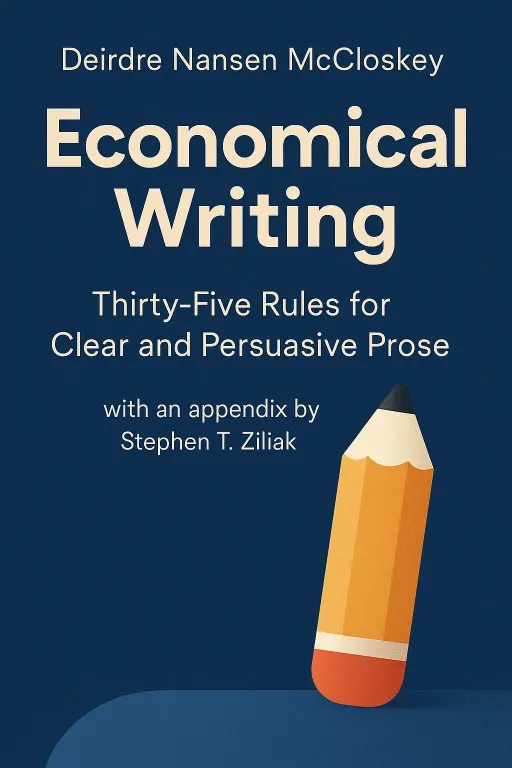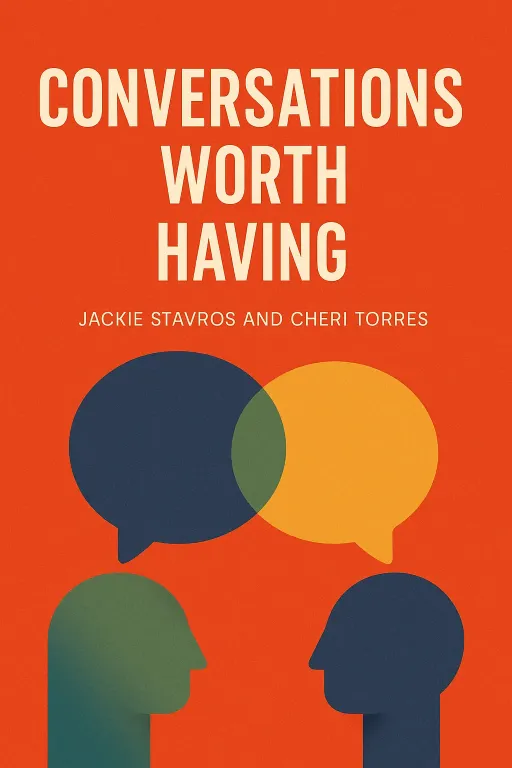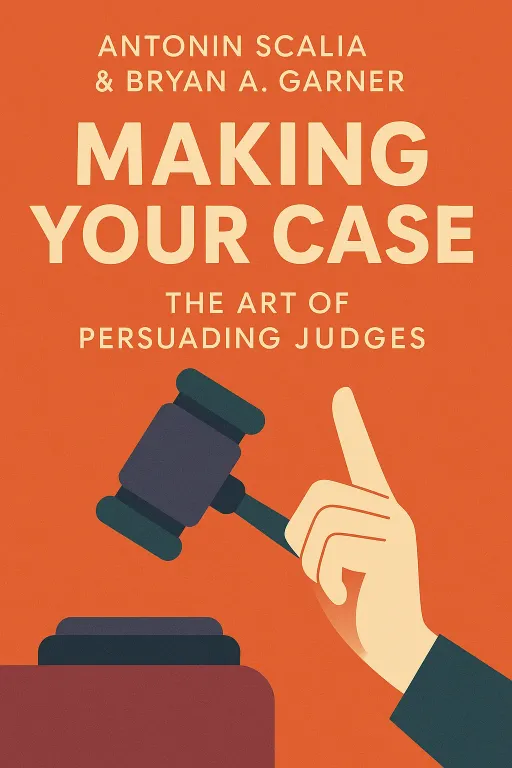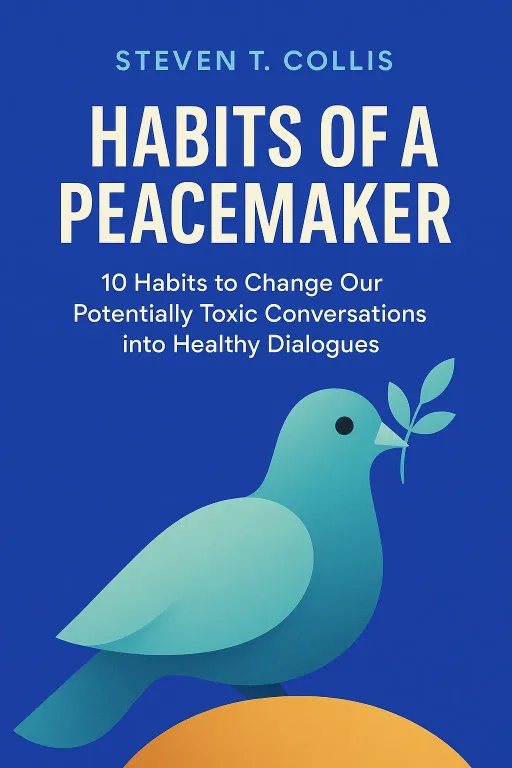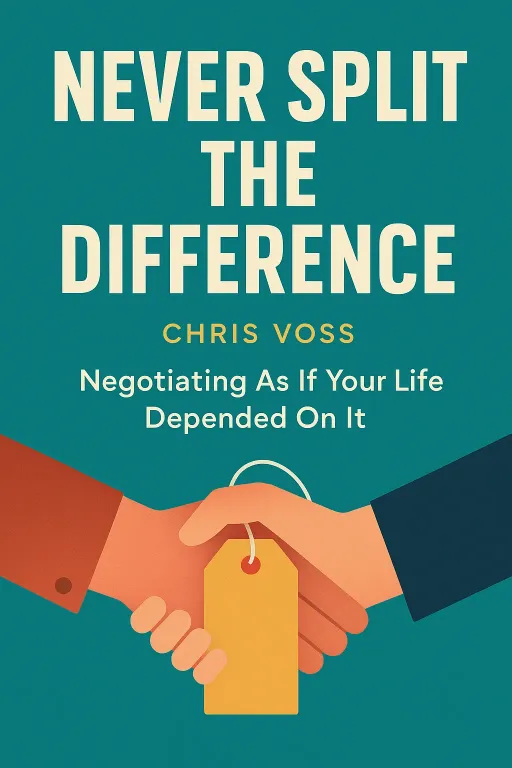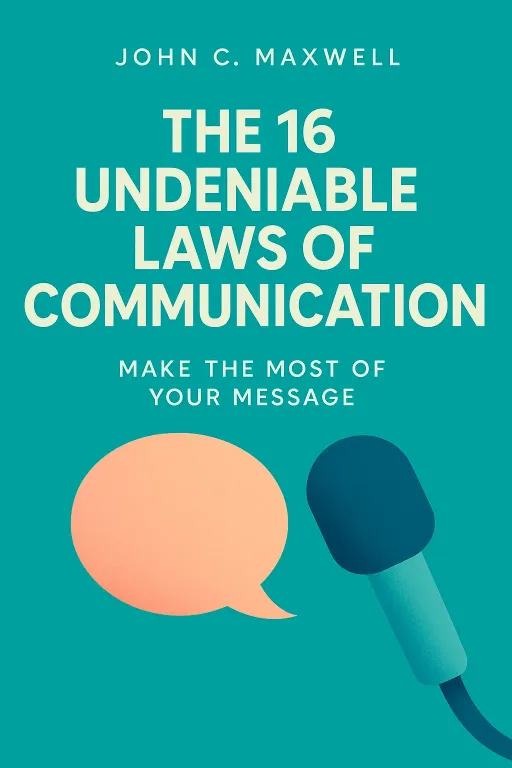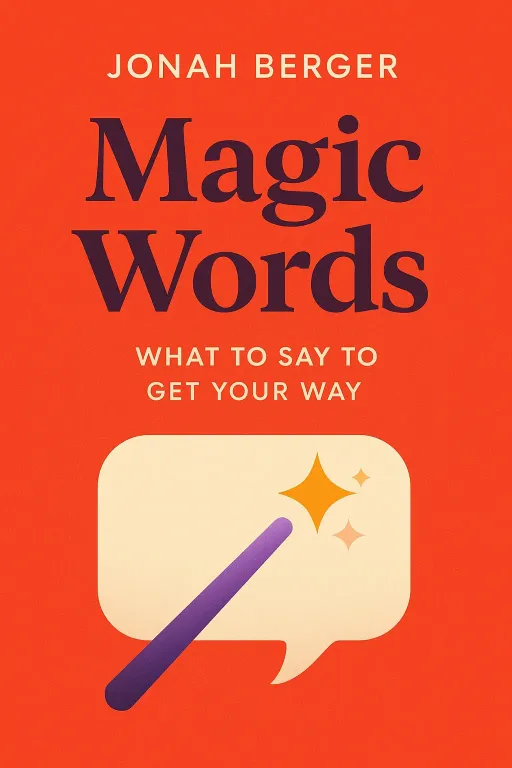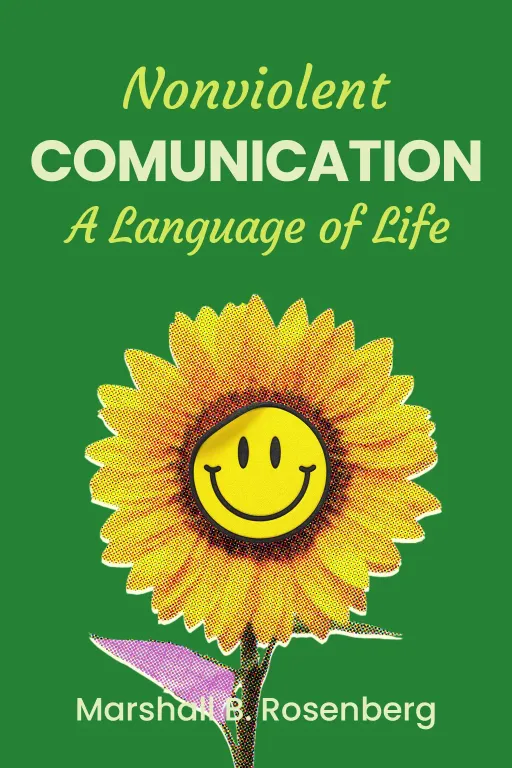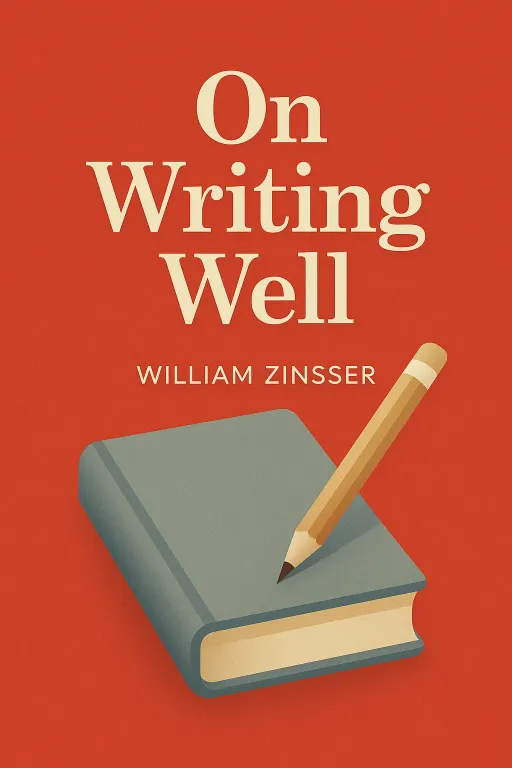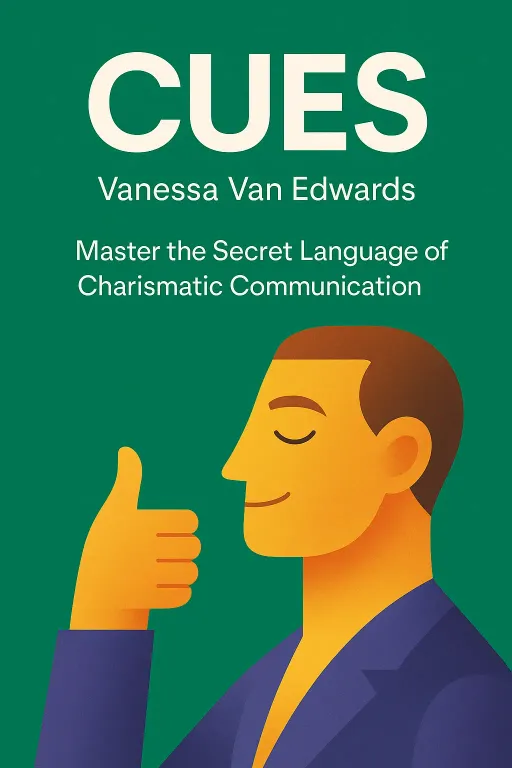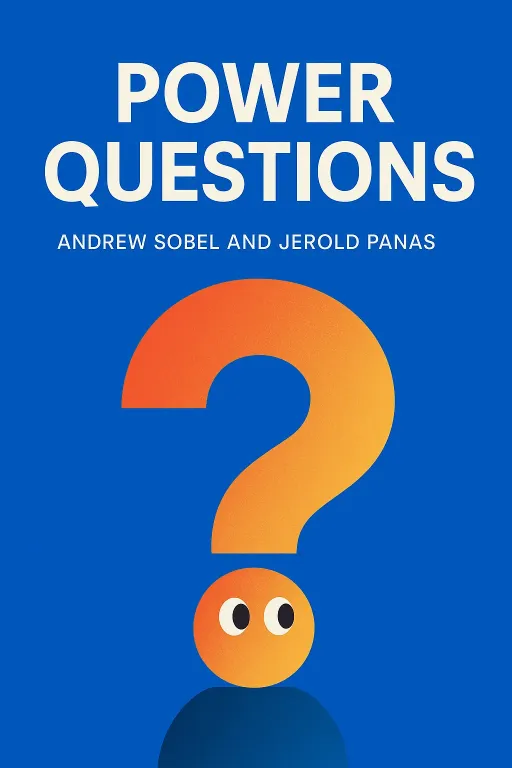
The Question is the Answer
10 minGolden Hook & Introduction
SECTION
Michelle: Alright Mark, I'm going to say a book title, and you have to give me your brutally honest, one-sentence roast of what you think it's about. Ready? Mark: Oh, I was born for this. Hit me. Michelle: Power Questions. Mark: Okay, that's a self-help book for people who want to sound smart in meetings but end up just annoying everyone. Michelle: You're not entirely wrong, but you're not right either! That's what we're diving into today: Power Questions: Build Relationships, Win New Business, and Influence Others by Andrew Sobel and Jerold Panas. Mark: So, who are these guys? Gurus of the annoying meeting question? Michelle: Kind of the opposite. They're experts in fields where relationships are everything—one in high-stakes client loyalty, the other in non-profit fundraising. They came together to write this book in 2012, right when the business world was starting to realize that the old way of selling and leading—just talking at people—was broken. Mark: Okay, so their big idea is what? Talk less? Michelle: Ask more. They argue that the most powerful people don't have the best answers; they ask the best questions. It’s a total inversion of how we think about influence. Mark: But hold on, if I hire an expert, a consultant, a lawyer, whatever... I want them to give me solutions, not ask me a bunch of questions. Doesn't that make them look weak or unprepared? Michelle: That’s the exact paradox this book blows up. The authors would say that showing up with all the answers is actually the weakest move you can make.
The Counter-Intuitive Power of Questions: Why Asking is More Influential Than Telling
SECTION
Mark: Really? That feels completely backwards. You walk into a big meeting, you want to project confidence, authority. You want to show them you’ve done the work. Michelle: And how do you think you show you've done the work? With a 100-slide PowerPoint deck? The book opens with a fantastic story that flips this idea on its head. The authors are interviewing the CEO of a 12-billion-dollar company. They're in his massive office on the fortieth floor in Chicago, and they ask him, "What really impresses you? When someone is trying to win your business, what builds trust?" Mark: I'm guessing he didn't say, "A killer slide deck." Michelle: Not even close. He leans forward and says something like, "I can always tell how experienced and insightful a prospective consultant, banker, or lawyer is by the quality of their questions and how intently they listen. That's how simple it is." Mark: Wow. So the power move is to not have the answer immediately? It’s to have the right question. Michelle: Exactly. Because a good question demonstrates you understand the landscape. It shows you've thought more deeply about the problem than anyone else. The book contrasts this with a painful story about a newly promoted consulting partner. He gets a huge meeting with a major telecom company, a potential dream client. Mark: Okay, I can picture this. He's sweating, he's over-prepared. Michelle: He's got binders, charts, a massive presentation. The client says, "So, tell us about your firm." And for the next thirty minutes, he does. He talks about their history, their methodology, their clients... a non-stop monologue. He's answering a question nobody really asked. Mark: Oh, I know how this ends. It's not good. Michelle: It’s a disaster. A vice president finally cuts him off, says he has another meeting, and they're all ushered out. They lost the business before they even started. The book calls this "digging the hole." You think you're filling the space with value, but you're just digging yourself deeper into irrelevance. Mark: Because he never stopped to ask what they actually cared about. Michelle: Precisely. A year later, the same partner is in a similar meeting with a senior mentor named DeWitt. The client asks the same question: "Tell us about your firm." But DeWitt just pauses, smiles, and asks, "What would you like to know about us?" Mark: Ah, the power question. Simple, but it completely flips the dynamic. Michelle: It does. The client is forced to articulate what they're actually interested in. The conversation becomes a dialogue, not a pitch. They won the business and worked with that client for eight years. The difference was one simple question that shifted the focus from "look how smart I am" to "what problem are you actually trying to solve?" Mark: That’s a powerful distinction. It’s not about you, it’s about them. But it feels like that's a lesson that goes way beyond just business meetings. Michelle: Exactly. And that principle of asking what the other person actually cares about doesn't just apply to boardrooms. It's even more potent in our personal lives, where we often make the same mistake.
The Vulnerability Key: Unlocking Human Connection with Simple Questions
SECTION
Mark: How so? I'm not exactly pitching my wife on a new strategy for managing the household budget. Michelle: No, but you might be taking the relationship for granted. The book has this gut-punch of a story about a couple, Ben and Liz. Ben's a classic corporate guy, worked 60-hour weeks for over 20 years, climbed the ladder. Liz put her own career on hold to raise their kids. They're successful, the kids are about to go to college, everything looks perfect on the outside. Mark: I feel like there's a 'but' coming. Michelle: A big one. A colleague of Ben's gets divorced, and his ex-wife's parting words to him were, "You always focused on your dreams, but you never asked about mine." Mark: Oof. That hits hard. Michelle: Ben hears this and it's like a lightning bolt. He's driving home and realizes... in 20 years, he has never once asked Liz about her dreams. He's been so focused on his own path, he never stopped to look at hers. Mark: That is... uncomfortably relatable. It's a question that feels so big, almost scary to ask. And some of the reviews of this book point that out, right? That these questions can feel a bit... scripted or 'too smooth' for real life. How do you ask that without it sounding like a line from a book? Michelle: That's a fair critique. The book's examples can feel very polished. But the authors argue it's not about the exact words. It’s about the intent. It's about genuine curiosity. So Ben gets home, they're having dinner, and he just takes a breath and asks, "What are your dreams, Liz?" Mark: And what happens? Michelle: She just stares at him. And then her eyes fill with tears. She says, "You've never asked me that before." And for the next two hours, they talk. Really talk. She shares her hopes, her fears, the things she gave up. The book says that one question opened up a whole new chapter in their relationship. It saved them from the quiet atrophy that had destroyed his colleague's marriage. Mark: It’s the same principle as the business meeting, just with higher emotional stakes. He stopped assuming he knew what was important and actually asked. Michelle: Yes. The book is full of these questions that seem almost too simple, but they cut right to the heart of things. "What in your life has given you the greatest fulfillment?" "If the circumstances were turned around, how would you like to be treated?" These aren't complex strategic inquiries; they're invitations to be human. Mark: Okay, so it's about genuine curiosity. But the book takes this one step further, doesn't it? It's not just about asking others, but about turning that powerful lens on yourself. Michelle: It does. And that might be the most difficult—and most rewarding—application of all.
The Mirror Question: Turning Inquiry Inward to Define Your Legacy
SECTION
Mark: Because it's one thing to ask your partner about their dreams. It's another to have a clear answer for your own. Michelle: And to have the courage to act on it. One of the authors shares a deeply personal story from when he was in college. He was pre-med, following in the footsteps of his father and grandfather, who were both respected physicians. It was the expected path. He even had a childhood fascination with his dad's black medical bag. Mark: The family legacy. The pressure must have been immense. Michelle: It was. But he wasn't passionate about the science classes. He secretly dreamed of international business and travel. Then, in his sophomore year, he's in a career guidance seminar. The instructor gives them a very strange assignment. Mark: Let me guess. It involves a question. Michelle: A big one. The instructor says, "I want you to take the next hour and write your own obituary." Mark: An obituary? That's intense. But it makes total sense. It forces you to define what 'a life well-lived' actually means to you, not to what everyone else expects. Michelle: Exactly. So the author starts writing. He describes this distinguished medical career, the family, the community leadership—basically, his father's life. But after twenty minutes, he just stops. He puts his pen down. He realizes he's writing someone else's story. Mark: Wow. What a moment of clarity. Michelle: He tears up the page and starts over. The new obituary is completely different. It's about a man who ran an international company, who was fluent in multiple languages, who lived and worked all over the world. It was his dream, not his family's. Mark: So what did he do? That's a huge decision to make based on one exercise. Michelle: He walked out of that seminar, went straight to a payphone, and called his dad. He said, "Dad, I have decided not to go to medical school." And after a long silence, his father just said, "I don't care whether or not you go to medical school. I am happy for you to pursue whatever career you'd like." Mark: That's incredible. The question in the exercise didn't just give him an answer; it gave him the courage to change his entire life. It's the ultimate 'Why' question, aimed at yourself. Michelle: It is. And that's the final layer of the book's argument. The most powerful question of all is the one you have the courage to ask yourself.
Synthesis & Takeaways
SECTION
Mark: So when you zoom out, this book isn't really a list of questions to memorize for your next meeting. It's more of a philosophy. Michelle: It's a framework for thinking. You see the progression. It starts with using questions to understand and influence the external world—your clients, your colleagues. Then, it moves inward, using questions to truly connect with the people closest to you. And finally, it lands on the most critical target: using questions to direct your own life. Mark: The real 'power' of the question isn't in getting an answer from someone else, but in the transformation that happens in the person being asked—whether that's a client, a partner, or yourself. Michelle: That's the heart of it. A good question doesn't just extract information; it creates a new reality. It makes someone see their problem, their relationship, or their own life in a completely different light. Mark: It makes you wonder what single question could change things for you. So, for our listeners, we're curious: What's one 'power question' from your own life that's made a difference? Or one you're now brave enough to ask? Michelle: Share your thoughts with us. We'd love to hear them. It's a conversation worth having. Michelle: This is Aibrary, signing off.
